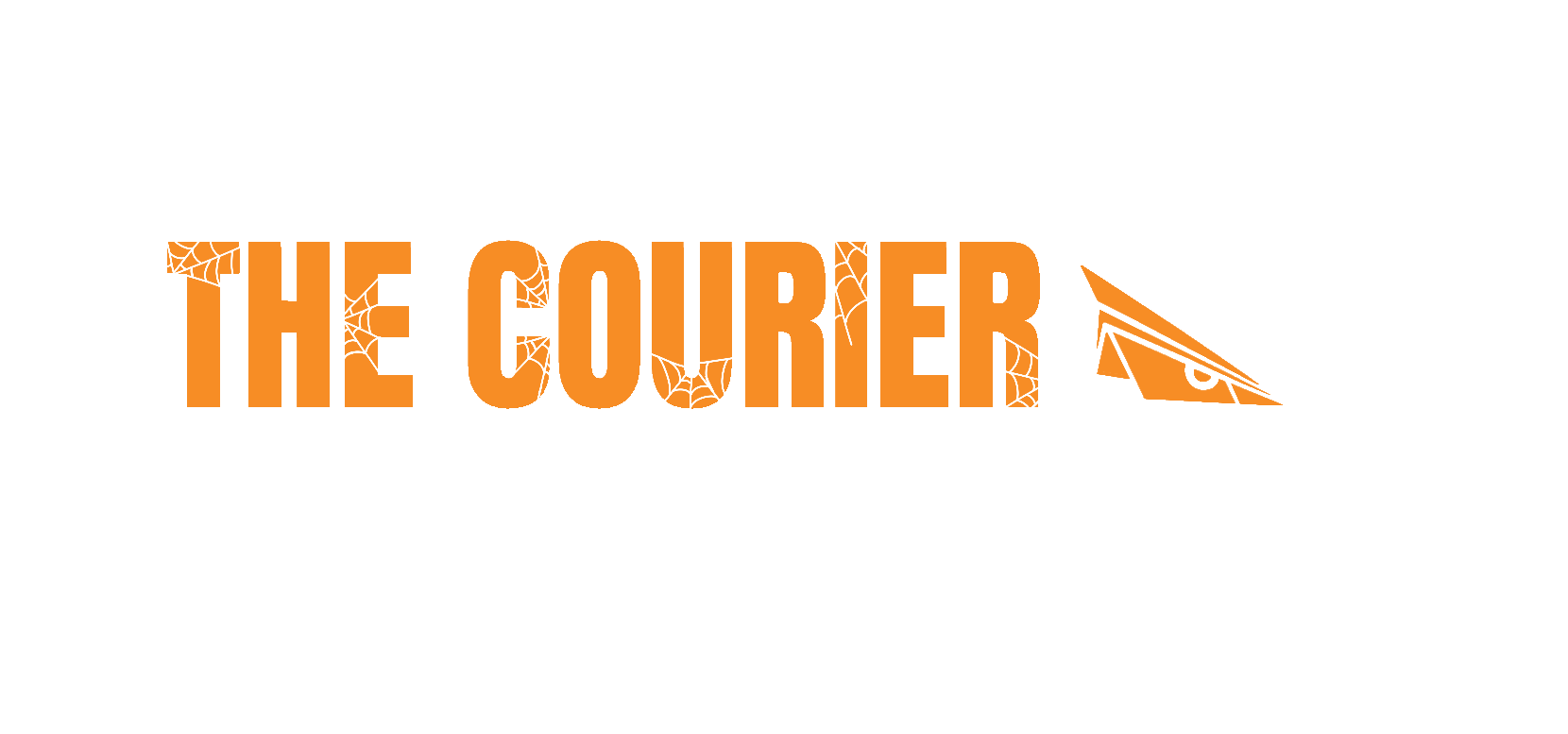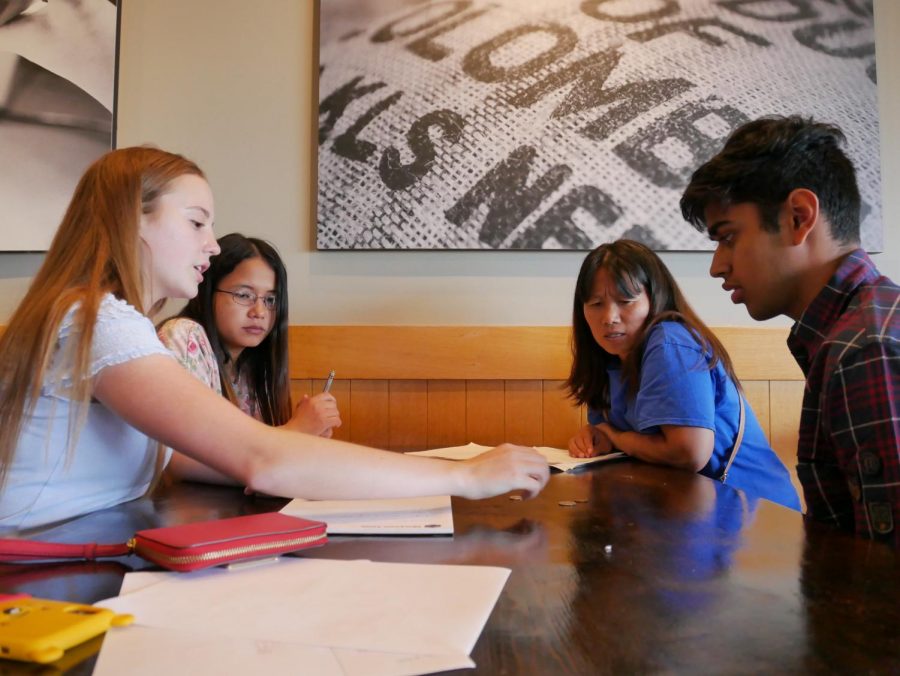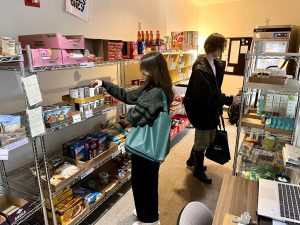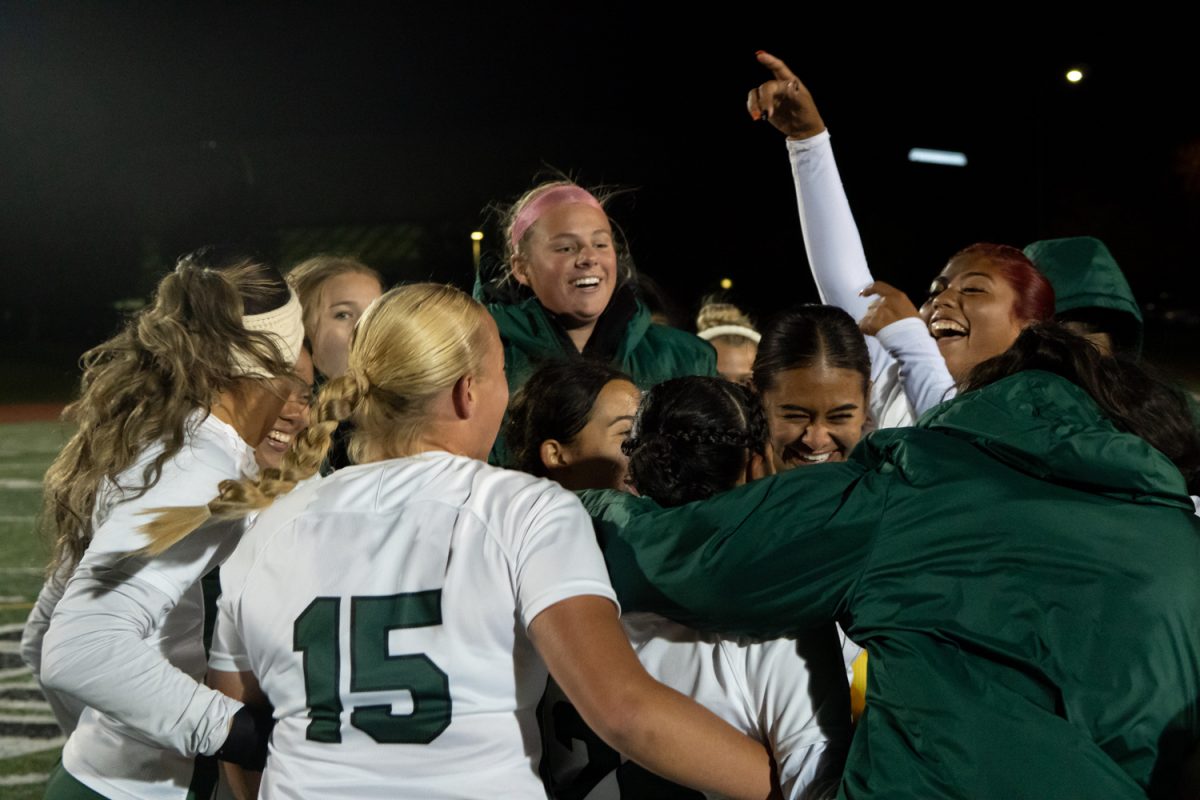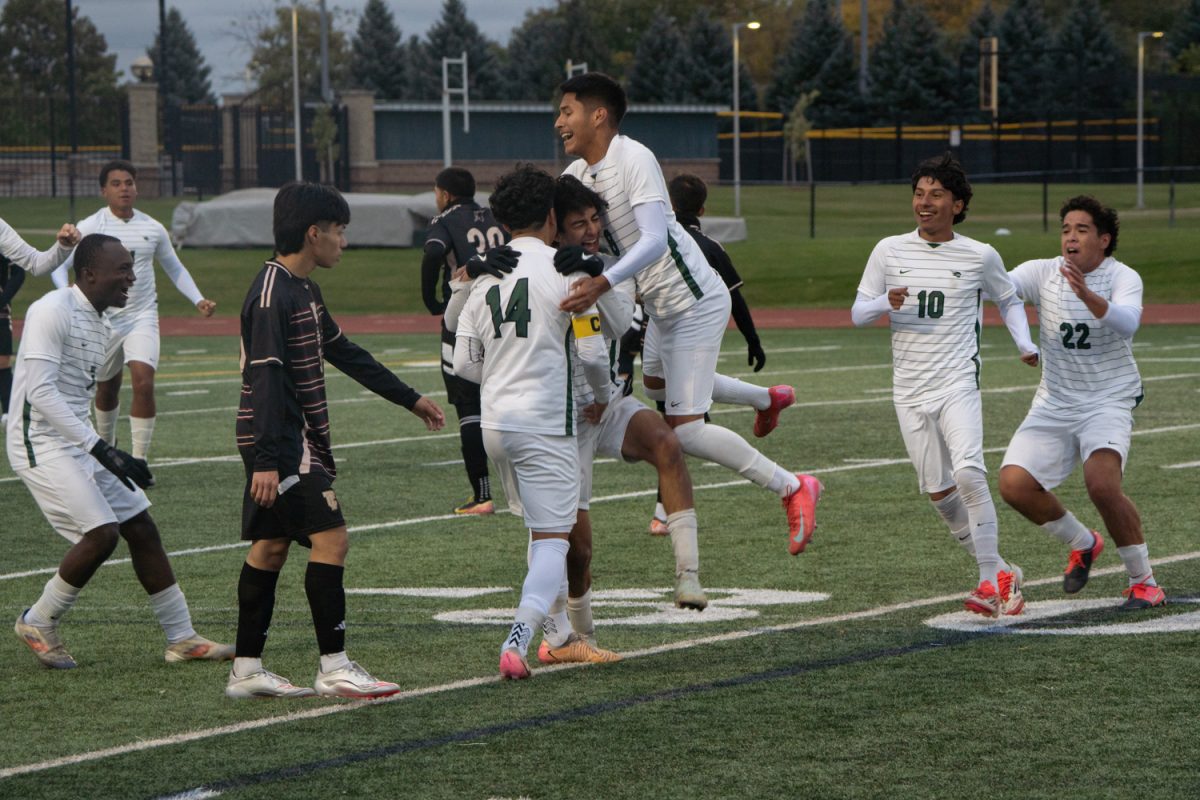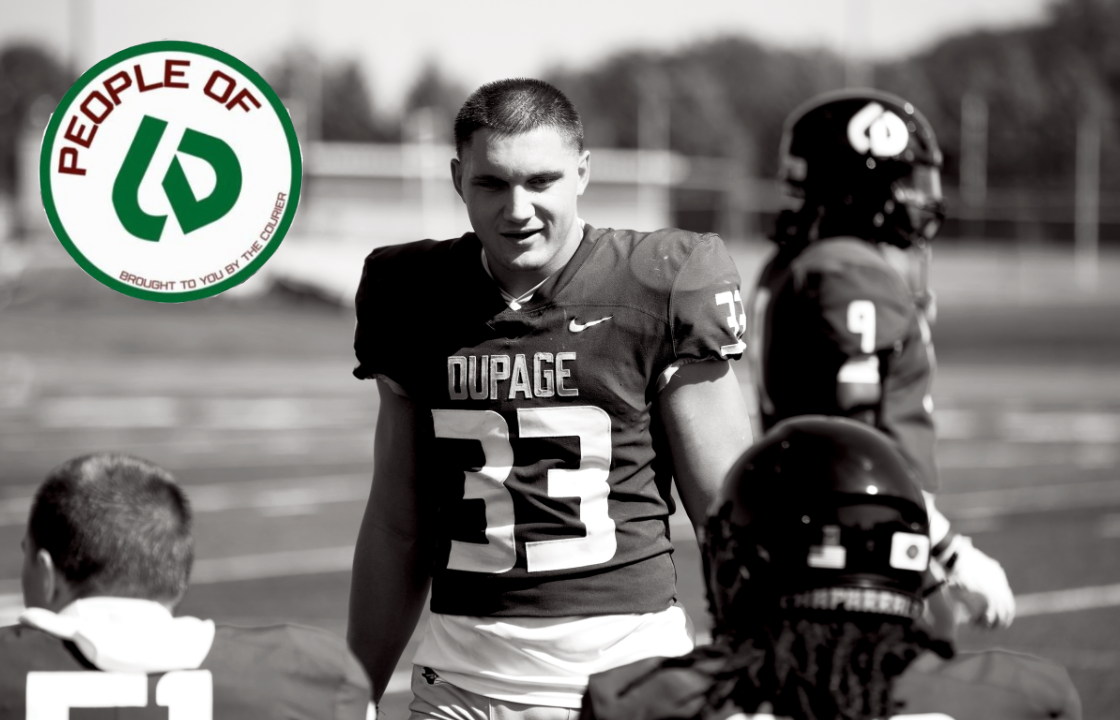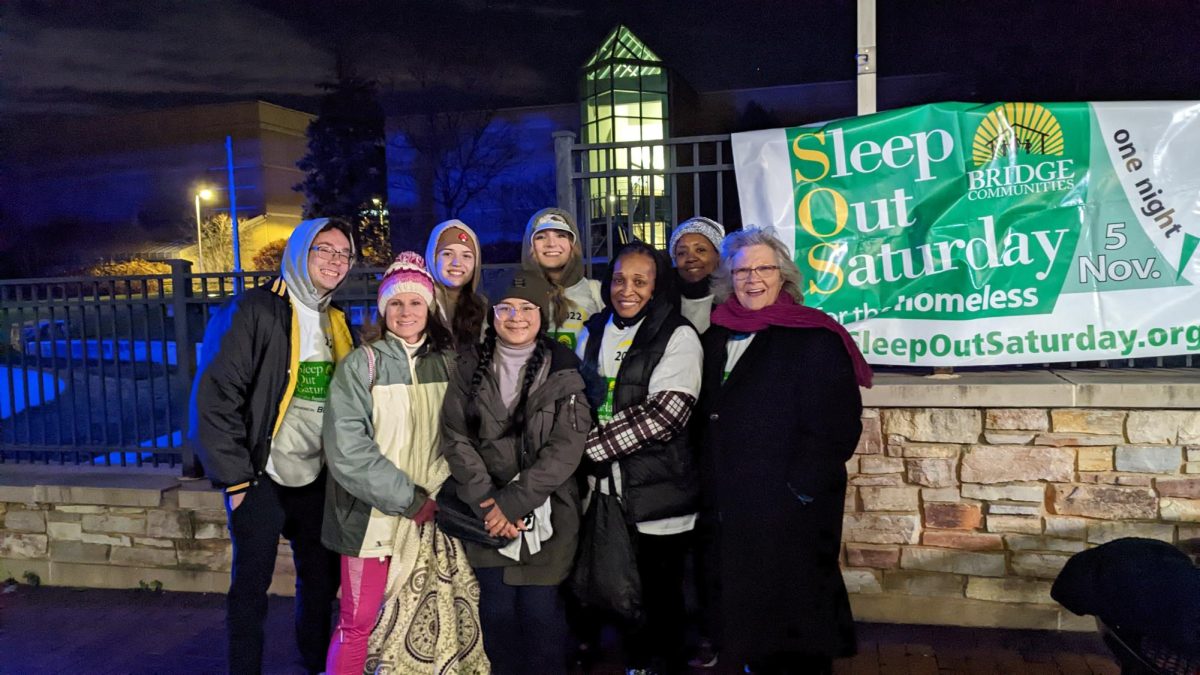Educating immigrants is an investment, not charity
(How high school-run non-profit Dialekt is changing lives)
High school tutors of Dialekt, a non-profit, help immigrant learners with math and reading comprehension skills necessary for adjusting to new jobs in America (photo by Brian Schatteman)
October 30, 2019
After fleeing displacement in India, Anju Bhujel met her husband in a refugee camp in Nepal. Three years after being accepted into the United States under refugee status with her son, she’s ready to face the next challenge in her life.
“I want to gain some knowledge so I can get a good job and achieve future goals,” said Bhujel. “I want to be able to teach and help my son if he has any problems with his math homework.”
For refugees like Bhujel, few businesses offer the training necessary to help immigrants acclimate to a job appropriate for their occupational skill set.
After witnessing this problem with her immigrant grandmother, who was an engineer in Kazakhstan, Sophia Pribus, a senior at the Illinois Mathematics and Science Academy in Aurora, was inspired to create Dialekt, a non-profit organization providing tutoring services to help immigrants escape low-income jobs and achieve long-term success.
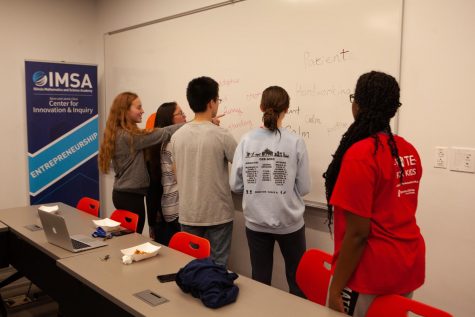
“I was trying to figure out how to help my grandma when I realized there is nothing she can access for support,” said Pribus. “I decided I have to make something. My mother is also an immigrant from Kazakhstan, and I saw how difficult the process was for my grandma when she was emigrating. She had been very successful in Kazakhstan, with lots of education, but (adjusting to life in) the U.S. is a difficult process. There are many organizations to help people attain survival jobs, but few focus on helping place people in more advanced long-term jobs. This big gap is called occupational mismatch.”
Cited by Dialekt, the Center for Immigration Studies reported among immigrants with a college degree, 20% have a low-skill job, compared to 7% of native-born American citizens.
To help close the gap, Dialekt partnered with World Relief of Aurora/DuPage using around 20 high-school volunteers to provide tutoring and vocational training to nearly 25 immigrants in the Aurora community.
(Joey Weslo: In-depth look into World Relief’s efforts to help immigrants and refugees)
After a tutoring session working on fractions, percentages and multiplication, Bhujel said Dialekt was important to help her achieve her goal of one-day entering the medical field.
“I’m very thankful and grateful for these friendly students helping me to learn something new,” said Bhujel.
All of Dialekt’s high school volunteers are children of immigrants, with many helping their parents go through similar processes as the immigrants they teach.
“Everybody is very empathetic to the process,” said Pribus. “We start with general sensitivity training, making sure the tutors are comfortable working with immigrants. It can be difficult to teach a subject when the language barrier is so prevalent. Then we move on to more specific subjects. It’s so rewarding to see the progress people make.”
In addition to the tutors, Dialekt is composed of high school students filling the roles of president, volunteer coordinator, business adviser, advertising and marketing coordinator, and a technology director.
In partnering with World Relief, Dialekt first focuses on designing a tutoring session involving reading comprehension and basic math skills each immigrant needs for World Relief’s entrance exam. This exam is used to place immigrants in World Relief’s vocational programs. Dialect then individually constructs tutoring lessons for whatever occupation the immigrant’s program is training them for.
Zombe Laposi worked as a goods trader before escaping sectarian violence the Democratic Republic of Congo to a refugee camp in Zambia. After living in America for three years and working as a machine operator, Laposi wants to work towards a commercial driving license.
Dialekt devised an individual physics program to help support Laposi through his training process. In their first session, they worked on mathematical computing.
“It was easy (working with the students), continuing to learn the math I need for my CDL test,” said Laposi. “They understand us, and their patience helps. We can’t do everything at once, so I’m going to keep learning bit by bit.”
Rachel Greene works as the senior employment specialist for World Relief Aurora. She said Laposi found his tutoring session very helpful.
“Most clients are receptive to learning from anyone willing to take (the) time to teach them,” said Greene. “(Because) Dialekt’s tutors are immigrants or children of immigrants, they already have a unique cultural awareness that is key (for) cross-cultural communication training.”
Pribus said their group started with interview skills and resume building workshops in local libraries with a local business expert explaining to immigrants what businesses look for in a resume. They then asked World Relief for advice, and World Relief said they were looking for a group to run a tutoring service for one of their programs. Through World Relief, Dialekt has worked with immigrants from Myanmar, India, DR Congo, and through their own personnel, they’ve worked with people from Kazakhstan, Mexico and Venezuela.
Dialekt views their services as part of the triangular structure of social benefits. Companies, immigrants and students all give something back to each other. Students offer tutoring, while immigrants offer a piece of their culture and a new perspective to broaden the students’ awareness.
“The first person I worked with was from Myanmar,” said Pribus. “She told us how she escaped to Malaysia from Myanmar’s government oppression, involving people in her tribe being murdered and raped. I listened, wondering how she had the strength to come to the lesson. When I asked her what she hoped to gain through us, she said she wanted a better job to support her family in the U.S. and back home. We are now working together to organize a clothing and educational material drive for her tribe in Myanmar. That’s an amazing connection to have.”
Pribus said students are impressed and learn from each immigrant’s dedication to advance and improve their lives. She said many wondered if immigrants would feel too humbled learning from high school students, but in her experience everyone has been eager and excited to learn.
Greene said patience is required to navigate language barriers and tutoring someone with little formal education, but the experience can be rewarding.
“Refugees can teach the students about resilience and perseverance,” said Greene. “As adults who tend to speak multiple languages, have lived in multiple countries, and have (plenty) of life experience (including hardship), they can teach students about adapting to a new life.”
Greene said most people they recommend to Dialekt have been living and working in the U.S. for at least a year. They’ve taken English and job readiness classes, and worked, gaining various skills and employment experiences. Many are currently in the process of furthering their education and vocational training to leap into better careers.
Greene said working with immigrants needs to be viewed as an investment rather than just charity.
“Schools, hospitals, businesses and our communities all (benefit) when everyone in society is sharing their gifts,” said Greene. “Refugees and immigrants have a wealth of knowledge and skill to add to American society, but a lack of avenues to bring out those gifts hampers opportunities. Foreign born residents add so much, including business entrepreneurship, fulfilling job demand and promoting local business.”
Pribus said awareness needs to challenge the stigma less-educated immigrants are stealing lower-waged jobs while driving Americans out of the labor force. Their unique perspectives are valuable, with studies showing increased corporate diversity leads to a better production of ideas.
“It’s important businesses start taking occupational mismatch more seriously because there is currently a perception that it’s a big investment to educate immigrants through occupational training,” said Pribus. “Companies desire to only get the best from the most prestigious global universities. In reality, everybody who immigrates to the U.S., regardless of their educational background, has immense potential to offer. Companies need to realize offering training and advancement opportunities to immigrant employees leads to more economic success.”
Pribus said destigmatizing the issue can begin by raising awareness as early as high school-aged students. She believes the expansion of Dialekt into other high schools can provide a pivotal role. They have recently expanded to schools in Aurora and desire to branch out across Chicagoland.
“I’m definitely going to stay involved with Dialekt for the rest of my life because this is something I’m very passionate about,” said Pribus. “Many high school and college students don’t recognize (occupational mismatch) is an issue. Getting students involved helps broaden the awareness and brings people a greater cultural perspective while improving communities and individual’s lives. The younger you become aware, the greater the potential for making a great difference in the future.”
